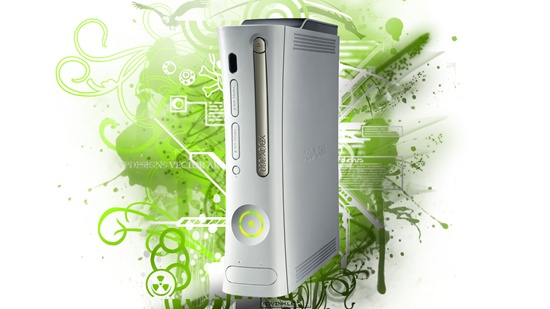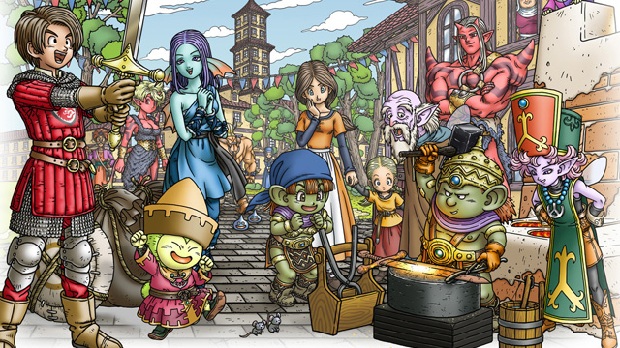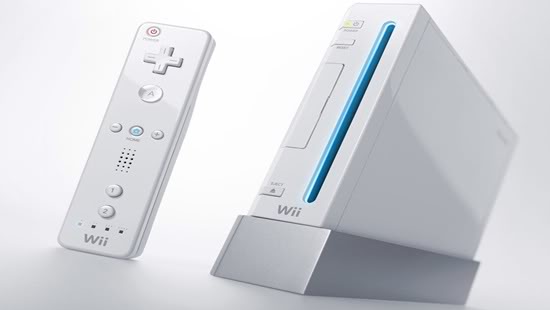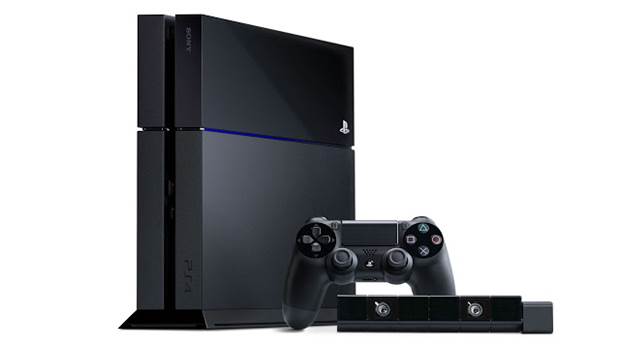
As I was watching the Tokyo Game Show last week, and seeing the triumphant return of the Japanese gaming industry, which had spent a decade in decline, migrating first to handheld devices, and then later on, to mobile gaming, it occurred to me just how strong of a show the Japanese games industry was really putting. We had publishers and developers of all sizes pitch their tents, and come forward with their contribution, as they all tried to revitalize the Japanese console industry- action games, adventure games, rhythm games, and of course, the perennial Japanese favorite, the Japanese role playing games, were all in full show here. Big name Japanese publishers like Square Enix and Capcom got to put their best foot forward, middle tier publishers like Atlus and Tecmo Koei flexed their muscle and signaled their desire to join the big league, and even Japanese indie games got a shout in.
What was extremely interesting to me was the system that they were all rallying around. The Japanese market has traditionally always chosen one system (almost always the leading system), and then chosen to rally around it- it was the NES first, then the SNES, then the PlayStation, and then the PlayStation 2. And that was when things began to get murky. As the previous generation started, and the PlayStation 3 floundered, with a disastrous start, but more importantly, an eccentric architecture that was time and resource intensive, all of a sudden, the Japanese market had nowhere to go to- they tried to coalesce on the Xbox 360 for a while, with exclusives like Tales of Vesperia, Lost Odyssey, and Dead Rising, but that didn’t work out, the Xbox simply didn’t have the demographic to make these kinds of games work.
They did try with the Wii, which was leading the market with record breaking sales, but the Wii had its own issues- it was limited in terms of its technical scope, limited in terms of the inputs and control options it afforded developers, and the market the Wii courted was entirely the kind of market that was disinterested in high end console games.
In desperation, the Japanese market migrated to the handhelds, the DS first, and later the PSP. And while they thrived and subsisted there, this started a gradual trend towards low end gaming, all of which culminated in, around 2010, an almost complete shift in focus to mobile games.
"
And all that this had needed was the lack of a strong PlayStation console leading the market.
Which is why it was, to return to the point I was making, interesting to see the system that Japanese publishers and developers seem to be rallying around as they attempt to revive the high end gaming market in Japan- that system is the PlayStation 4. The PlayStation 4 is what the Japanese industry is going with, and I find it interesting, because unlike every other instance so far, they have not picked the market leading system- indeed, the PS4’s performance in Japan has been nothing short of pathetic. The 3DS is the market leader there, by a wide margin. The Vita leads the PS4, by a healthy margin. The Wii U even leads the PS4.
But it appears that the Japanese game creators have come to the same conclusion that I have long since held to be true- if they are to survive, they need a PlayStation console at the head of the market.
Raising (and pre-empting) arguments against this is where an interesting dichotomy about the games industry and market comes to light, global trends that reveal just how important PlayStation really is to the overall gaming landscape. It’s not rocket science, really- consider, for instance, Xbox. Why not have the Xbox be market leading? What exactly is wrong with having an Xbox lead the console market? Why is that somehow worse for the industry than having PlayStation lead?
If you have paid attention to my argument so far, you already know the answer- the Xbox as a console, as well as the demographic that it presents to publishers and developers, is positively hostile to the Japanese market. The Xbox does very well in terms of western third party support and consumer acceptance, but it also does only well at western third party support and consumer acceptance. Most Japanese third party publishers and developers, except for some of the ones at the very top making full fledged AAA games that require multiplatform investment for the games to be profitable, will not support the Xbox, simply because the Xbox has been roundly rejected by the Japanese market. For a smaller company like Atlus or Falcom, what use is there in making a version of Persona or Ys for the Xbox One, and waste significant resources, when no one in Japan, which is their primary market anyway, will actually buy the game on the Xbox One?
There is also the all important question of demographics to consider. I really want to stay away from traditional labels and stereotypes when it comes to console audiences, but the Xbox does appeal to a more western audience than anything else. Hearing Xbox owners and players largely dismiss Japanese games or game developers as unworthy of their notice is not exactly uncommon- even if a company like Atlus or even Square Enix were to launch their game on the Xbox One, it would be mostly ignored by the Xbox install base, simply because that install base does not favor Japanese games. Having an Xbox console be the leading standard of development in the game industry, then, will lead to the kind of slow death of the Japanese gaming industry that we saw in the last generation.
"But this is not about just Japan- this piece is titled ‘Why PlayStation Being Dominant May be The Best Thing For The Gaming Industry,’ not ‘Why PlayStation Being Dominant May be The Best Thing For The Japanese Gaming Industry.’This means that the other side of this asymmetry is also something that needs to be addressed. "
But this is not about just Japan- this piece is titled ‘Why PlayStation Being Dominant May be The Best Thing For The Gaming Industry,’ not ‘Why PlayStation Being Dominant May be The Best Thing For The Japanese Gaming Industry.’This means that the other side of this asymmetry is also something that needs to be addressed.
Imagine, then, a Nintendo console leading the market. And not a Nintendo console like the Wii- let’s imagine something like Nintendo’s glory days, a console with hardware parity, the necessary online infrastructure, a system in other words ripe for support by not only Nintendo themselves, but also third parties. Surely such a console would be far better for the industry than PlayStation would!
But that is also not true, and a large reason for this is how Nintendo conducts its business. Nintendo is a remarkably Japanese company, and the way it conducts its business reflects that. Most of the third party support on Nintendo systems is Japanese- Capcom with Monster Hunter, Atlus with Shin Megami Tensei, Square Enix with Dragon Quest, and so on. This has always held true- in fact, one must remember that consoles were largely thought to be the realm of Japanese developers and publishers (while PC was thought to be the realm of western publishers and developers) for as long as Nintendo led the market, with the NES and SNES- serious western third party support for consoles did not actually become a thing until Sony entered the scene with PlayStation, which was when companies like DMA Design, Pygnosis, and Crystal Dynamics became every bit as important as Squaresoft and Namco.
Even if Nintendo were to manage third party support, it would mostly be multiplatform versions by publishers or developers making AAA games that need as many versions as possible to ensure profitability- and even then, it is hard to imagine companies like Bethesda or DICE ever actually bothering much with a Nintendo system. Most western game support, including games from smaller developers such as CD Projekt RED, would simply not show up on Nintendo systems- what is the point? Nintendo’s own policies towards third parties notwithstanding, the demographic on Nintendo systems has long since been brought up on a diet of quirky Nintendo and Japanese games. Generally speaking, a Nintendo fan is as dismissive of the average third party western game as an Xbox fan is of a Japanese game. This is not to mention Nintendo’s relative weakness in the western market compared to their position of strength in the Japanese market.
Nintendo, in a lot of ways, has the position of being the equivalent of Xbox in the west (except a fair bit more relevant, thanks to their legacy, and the enduring popularity of their first party franchises and software). If Nintendo ever were to lead the industry, or become the industry standard for AAA development, it is not hard to imagine a lot of western third party support, especially anything below the absolute top publishers such as EA, Activision, Ubisoft, or Warner Bros., retreating to the safety of a proven market like the PC, killing a lot of western console game development in the process.
"No matter how successful a Nintendo console it, it will never stimulate western third party development."
This leaves us with an interesting situation- a strong Xbox is detrimental to Japanese game development on consoles (of course, Japanese game development itself would continue to exist, though it may migrate to platforms like smartphones or handhelds), while a strong Nintendo is detrimental to western game development on consoles (again, western game development itself would continue to exist, but it would probably shift back to PCs, and move off consoles).
The interesting thing about PlayStation, then, is its unique position as a global leader. PlayStation may have some territories it has always been strong in (Europe) and others where it has relatively struggled (North America), but on the whole, it is a brand that has found global acceptance and success unlike either Xbox or Nintendo, whose success has always been more localized- even in Nintendo’s days of absolute monopoly with the NES, they never found footing in Europe, for example, and even when Microsoft ruled the roost with the Xbox 360, they barely made a dent in the Japanese market.
PlayStation, on the other hand, is successful everywhere. This is important, because it means it has a truly global audience- the system’s demographics lend themselves to a developer or publisher from anywhere in the world making a game for a PlayStation, and being assured of an audience. A PlayStation player does not dismiss a Japanese game like an Xbox player, and does not dismiss a western game like a Nintendo player. It’s a unique confluence.
This, in turn, owes itself to PlayStation’s historic strength in courting the development community from across the world. As I already mentioned before, back on the original PlayStation itself, we were seeing not just the continued dominance of Japanese third parties, with games such as Final Fantasy VII, Metal Gear Solid, Castlevania: Symphony of the Night, Resident Evil, and Persona, but also western ones- Medal of Honor, Rainbow Six, WipEout, Crash Bandicoot, Rayman, and more. This continued with the PS2 and PS3 eras, and we can now see it in full blast today with the PS4, where Sony can spend a section of its E3 conference dedicated to The Last Guardian, Shenmue 3, and Final Fantasy VII’s remake, right before moving on to discussing Assassin’s Creed, Uncharted, and Call of Duty, and where they can spend a portion of their TGS conference talking about Call of Duty, Assassin’s Creed, Uncharted, and For Honor, before also talking about Gravity Rush, Ni-oh, and Star Ocean 5.
It’s a circular, self reinforcing argument- players of all tastes buy PlayStation because game makers from all over the world make games for PlayStation because players of all taste buy PlayStation because…
"You don’t have to like the PS4 to understand its importance to the gaming market."
The key to understanding this argument here is that gaming is a global hobby- as a video game player, separated from our own personal interests or fanboy allegiances, all of us must hold the ability to objectively recognize that any part of the global gaming market being weakened or deteriorated is a detriment to gaming as a whole. Even if you personally can’t bring yourself to care for Tales of Zestiria or Disgaea 5, you must understand there are a lot of people who do, and a lot of people who make those games, all of whom would be excluded from the industry if their portion of the market were to be sidelined. Similarly, even if you roll your eyes at western titles like Call of Duty or Assassin’s Creed, you must realized that a huge portion of the market cares for them, and thousands are involved in making those games- and they would all be out of the industry if their part of the market was sidelined.
If you want consoles to continue to thrive, if you want console gaming to truly grow and become a global and inclusive hobby, you need a platform that is global and inclusive as well. No other platform other than the flagship PlayStation is- not Nintendo, not Xbox. You don’t have to like PlayStation to understand this (and I certainly have my fair share of issues with how Sony is handling the PS4), and simply understanding that the PS4 has to lead is not wishing failure upon either Nintendo or Xbox- as last generation showed us, we can have more than one successful console at a time.
The important thing is for the PlayStation to be the market leader, to be the standard for third party development- and as much as many might hate to admit, that and that alone will ensure that console gaming continues to be inclusive, and more importantly, continues to grow rather than face contraction as entire portions of the market cease to be served.
The views expressed in this article are those of the author and do not necessarily represent the views of, and should not be attributed to, GamingBolt as an organization.





















Share Your Thoughts Below (Always follow our comments policy!)